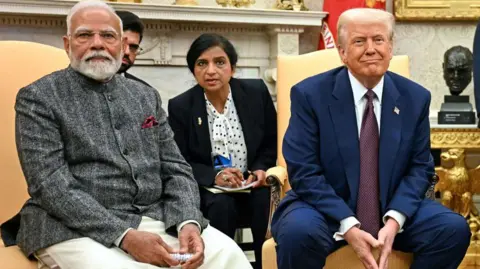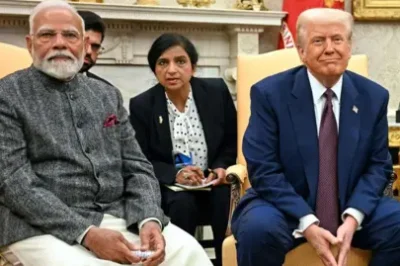
Introduction: A Firm Stand on Kashmir
In a recent phone conversation with U.S. President Donald Trump, Indian Prime Minister Narendra Modi reiterated India’s long-standing policy that all issues with Pakistan, including the Kashmir dispute, must be resolved bilaterally without third-party mediation. This statement came in response to President Trump’s earlier claims that the United States had mediated a ceasefire between India and Pakistan following a four-day conflict in May 2025.
Clarification of Ceasefire Negotiations
During their discussion, Modi clarified that the ceasefire was achieved through direct military-to-military communication between India and Pakistan, not through U.S. mediation. Indian Foreign Secretary Vikram Misri confirmed that the cessation of hostilities resulted from talks initiated by the Indian military, with Pakistan responding accordingly. This clarification underscores India’s position that it does not seek or accept external intervention in its bilateral relations with Pakistan.
Reaffirmation of Bilateral Approach
Prime Minister Modi emphasized that India has never accepted third-party mediation and will not do so in the future. This stance aligns with India’s consistent policy, as reflected in the Shimla Agreement and the Lahore Declaration, which provide the framework for resolving all issues between India and Pakistan bilaterally. India’s Ministry of External Affairs has previously rejected similar offers from other countries, including China and the United States, to mediate in the Kashmir dispute.
Implications for India-U.S. Relations
While the conversation highlighted a difference in perspectives, it also provided an opportunity for both leaders to discuss other matters of mutual interest. President Trump expressed support for India’s counter-terrorism efforts, particularly Operation Sindoor, and accepted an invitation to attend the forthcoming Quad summit in India. This engagement reflects the broader strategic partnership between India and the United States, encompassing areas such as defence, trade, and regional security.
Conclusion: Upholding Sovereignty and Bilateral Dialogue
India’s firm rejection of third-party mediation reaffirms its commitment to resolving disputes through direct dialogue with Pakistan. While international support is welcomed, India maintains that the sovereignty and territorial integrity of the nation must be respected, and all issues should be addressed through bilateral negotiations. As both countries continue to engage on various fronts, it is crucial to uphold the principles of mutual respect and understanding in fostering a stable and peaceful relationship.








































Leave a Reply